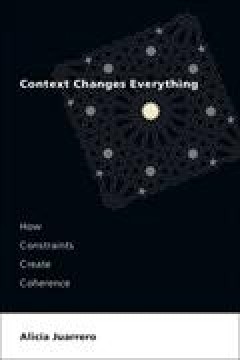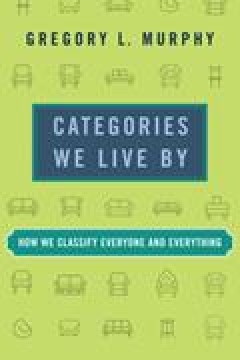Filter by
Found 269 from your keywords: subject="Cognitive"

Interdisciplinarity in the Making: Models and Methods in Frontier Science
- Edition
- -
- ISBN/ISSN
- 9780262372275
- Collation
- -
- Series Title
- -
- Call Number
- -
- Edition
- -
- ISBN/ISSN
- 9780262372275
- Collation
- -
- Series Title
- -
- Call Number
- -

Mind in Nature: John Dewey, Cognitive Science, and a Naturalistic Philosophy …
- Edition
- -
- ISBN/ISSN
- 9780262373463
- Collation
- -
- Series Title
- -
- Call Number
- -
- Edition
- -
- ISBN/ISSN
- 9780262373463
- Collation
- -
- Series Title
- -
- Call Number
- -

Principles of Knowledge Auditing: Foundations for Knowledge Management Implem…
- Edition
- -
- ISBN/ISSN
- 9780262373166
- Collation
- -
- Series Title
- -
- Call Number
- -
- Edition
- -
- ISBN/ISSN
- 9780262373166
- Collation
- -
- Series Title
- -
- Call Number
- -

Context Changes Everything: How Constraints Create Coherence
- Edition
- -
- ISBN/ISSN
- 9780262374774
- Collation
- -
- Series Title
- -
- Call Number
- -
- Edition
- -
- ISBN/ISSN
- 9780262374774
- Collation
- -
- Series Title
- -
- Call Number
- -

Open Minded: Searching for Truth about the Unconscious Mind
- Edition
- -
- ISBN/ISSN
- 9780262375375
- Collation
- -
- Series Title
- -
- Call Number
- -
- Edition
- -
- ISBN/ISSN
- 9780262375375
- Collation
- -
- Series Title
- -
- Call Number
- -

The Perception Machine: Our Photographic Future between the Eye and AI
- Edition
- -
- ISBN/ISSN
- 9780262376631
- Collation
- -
- Series Title
- -
- Call Number
- -
- Edition
- -
- ISBN/ISSN
- 9780262376631
- Collation
- -
- Series Title
- -
- Call Number
- -

Categories We Live By: How We Classify Everyone and Everything
- Edition
- -
- ISBN/ISSN
- 9780262377119
- Collation
- -
- Series Title
- -
- Call Number
- -
- Edition
- -
- ISBN/ISSN
- 9780262377119
- Collation
- -
- Series Title
- -
- Call Number
- -

From Geometry to Behavior: An Introduction to Spatial Cognition
- Edition
- -
- ISBN/ISSN
- 9780262377300
- Collation
- -
- Series Title
- -
- Call Number
- -
- Edition
- -
- ISBN/ISSN
- 9780262377300
- Collation
- -
- Series Title
- -
- Call Number
- -

The Elephant and the Blind: The Experience of Pure Consciousness: Philosophy,…
- Edition
- -
- ISBN/ISSN
- 9780262377287
- Collation
- -
- Series Title
- -
- Call Number
- -
- Edition
- -
- ISBN/ISSN
- 9780262377287
- Collation
- -
- Series Title
- -
- Call Number
- -

 Computer Science, Information & General Works
Computer Science, Information & General Works  Philosophy & Psychology
Philosophy & Psychology  Religion
Religion  Social Sciences
Social Sciences  Language
Language  Pure Science
Pure Science  Applied Sciences
Applied Sciences  Art & Recreation
Art & Recreation  Literature
Literature  History & Geography
History & Geography